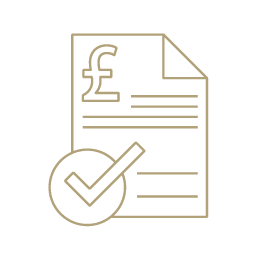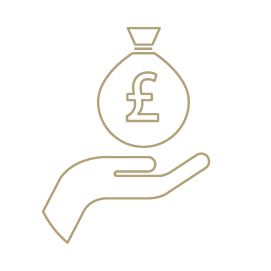5 top ways to reduce the amount of personal tax you pay
Melanie Richardson
17/07/2018
There are many legal ways to reduce the amount of tax you pay. Some simple steps can make a big difference to make sure that you’re paying the minimum amount of tax you need to pay each year.
There are also some more refined actions that you can take and if you’re interested in understanding more about how to optimise your situation to reduce your tax bill, do get in touch with Robin Stevenson our tax partner to discuss this further.
Top 5 ways to save on your tax bill:

Ensure your tax code is correct
There are times when HMRC will incorrectly issue a wrong tax code. There are many reasons that this might happen, but it is always prudent to check that you have been given the correct code, if it’s wrong, it can have a big impact on your take home pay.

Are you eligible for tax credits?
Tax credits are state benefits that can give you extra money in your pocket if you are looking after children, disabled workers or other workers on low income.
There are two main types of tax credit; working tax credits and child tax credits, the links below explain these options in more detail.
https://www.gov.uk/working-tax-credit
https://www.gov.uk/child-tax-credit

Maximise your ISA allowance
Every year you have a tax-free ISA allowance. For the 2018 – 19 tax year, the limit is £20,000. This can be put in a cash ISA, a stocks and shares ISA or your investment can be split between them both. Make sure you are taking advantage of these options to help save on your tax bill.

Pay into a pension scheme
If your contributions to a pension scheme are made from your gross income the government tops up your pension with tax relief, giving you an enhanced contribution.

Maximise your personal savings allowance
For the 2018 –19 tax year the first £1,000 of interest you receive from savings is tax free if you pay tax at the basic rate. As a higher-rate taxpayer, the threshold is £500. You can earn money on your savings without paying tax; only when your savings income exceeds the allowance is any tax due on it. If any tax is due you will have to pay this via self-assessment or have it deducted via PAYE through an adjustment in tax code.
There is no savings allowance if you’re an additional rate taxpayer.
There are further more specific tax saving opportunities that you can make if you’re self-employed, for example tax allowable expenses, vehicle costs, carrying forward losses and many more.
Landlords may also have specific ways to save on property income; these can include rent a room relief, property expenses, and tax relief on mortgage interest.. If you’d like to discuss your options and see how you might be able to reduce your tax bill get in touch with our tax partner Robin Stevenson
If you are unsure whether you are taking full advantage of the options available to you to minimise your tax liability, call us on 01825 763366 or 01323 892549 and we will make sure you get through to the right person to discuss your situation with you.
If you'd like to talk to our tax expert about your specific situation please get in touch with our Tax Partner Robin Stevenson using his contact details below:

Robin Stevenson - Tax Partner
Email: robins@swindellsaccounting.co.uk
Tel: 01825 763 366
Sign up to receive our private content
straight to your inbox






